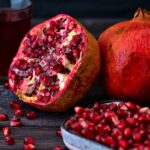 Probiotics are not for every person all the time. Depending on the level of dysbiosis or microbial imbalance someone may have, more gentle support may sometimes be wise. Enter polyphenols. Polyphenols are phytochemicals with antioxidant and anti-inflammatory properties which interact with our microbiome. Think of them like a gut fertiliser.
Probiotics are not for every person all the time. Depending on the level of dysbiosis or microbial imbalance someone may have, more gentle support may sometimes be wise. Enter polyphenols. Polyphenols are phytochemicals with antioxidant and anti-inflammatory properties which interact with our microbiome. Think of them like a gut fertiliser.
Protective benefits
Akkermansia muciniphila is a key protective species we have in our gut. Akkermansia is a huge polyphenol lover. We frequently use testing to asses someone’s microbial balance and this species is often low. It is sometimes even below detectable levels in some patients.
Studies indicate that akkermansia may affect glucose metabolism, lipid metabolism and intestinal immunity in a positive manner. In short it is health promoting – some evidence even suggests that it may play a positive role in certain cancer treatments.
Feeding it with polyphenols
Lower levels of akkermansia are associated with a decrease in short chain fatty acids which in turn can be associated with intestinal permeability. It plays a big role in keeping our protective mucin layer happy, the clue is literally in it’s title here. We like to feed it high polyphenol foods like pomegranate, cranberries, cacao, green tea and good olive oil to help it do it’s job of keeping the layer between our gut and the outside world strong.
These are not the only foods that contain polyphenols of course, just some of the heavy hitters. The more plant foods you eat the higher amount of polyphenols you will be getting in your diet. Try keeping a food diary for 3 days and then reviewing this and counting the number of plant-based foods you eat. Or use our diversity chart to challenge yourself to eat at least 40 plant-based foods in one week.
Check out this red cabbage, feta and pomegranate salad recipe to get you off to a flying start!
If you would like more information about the services we offer, including testing, please get in touch.

